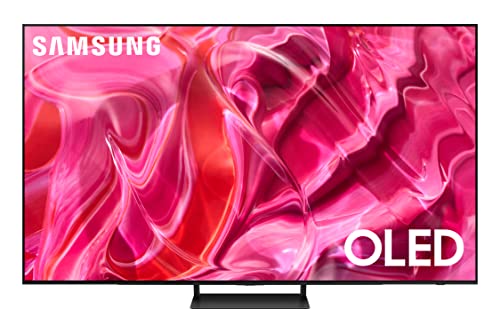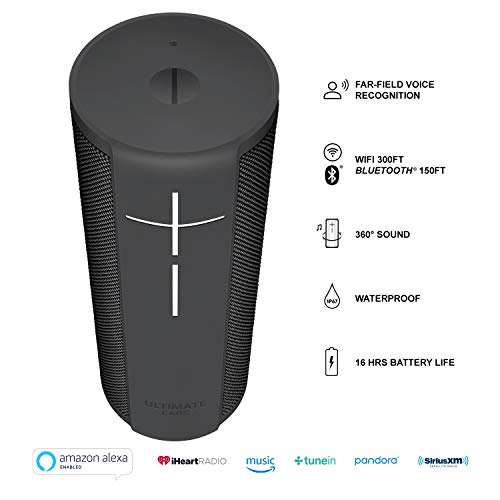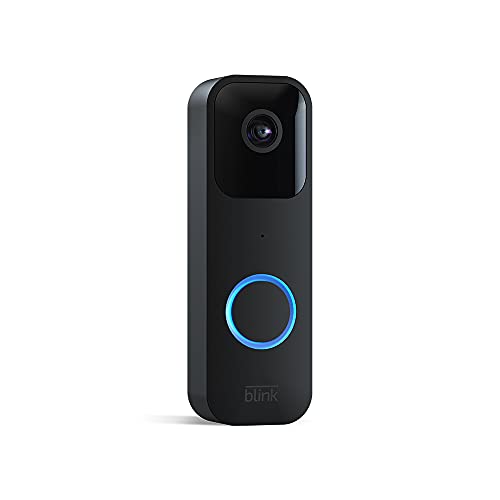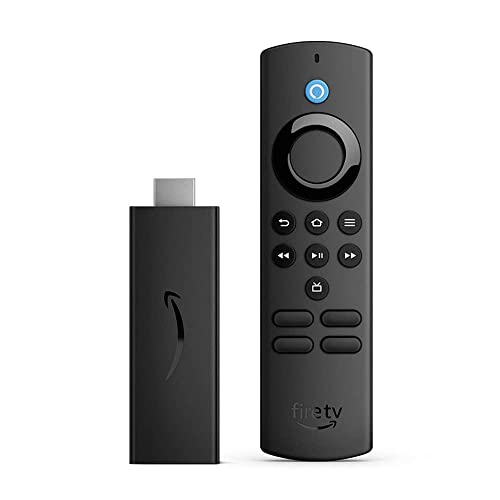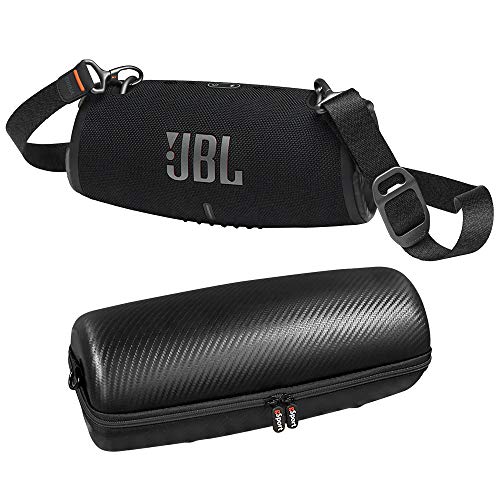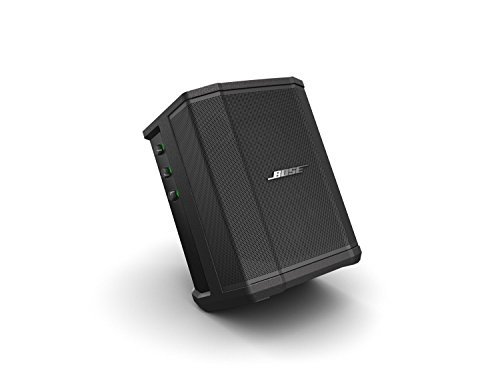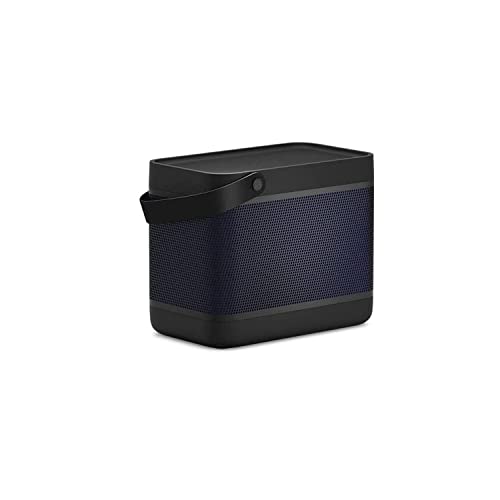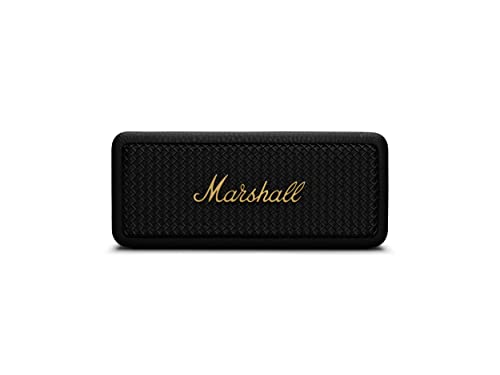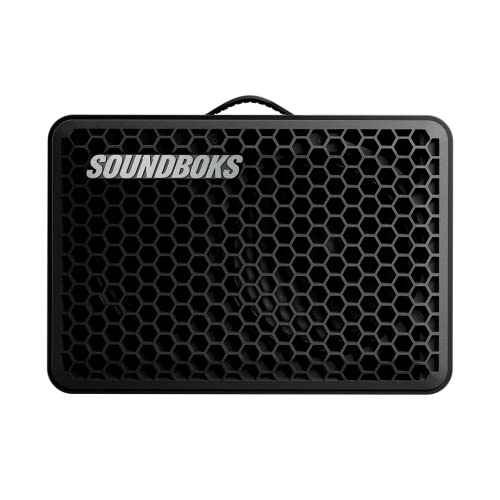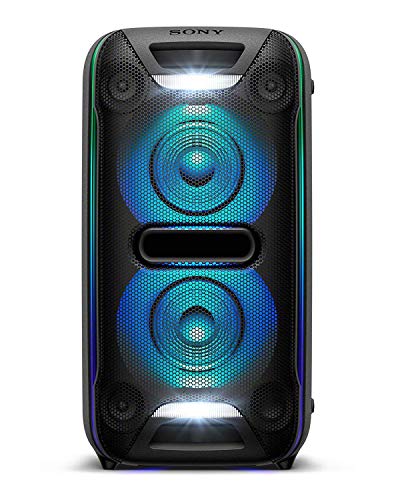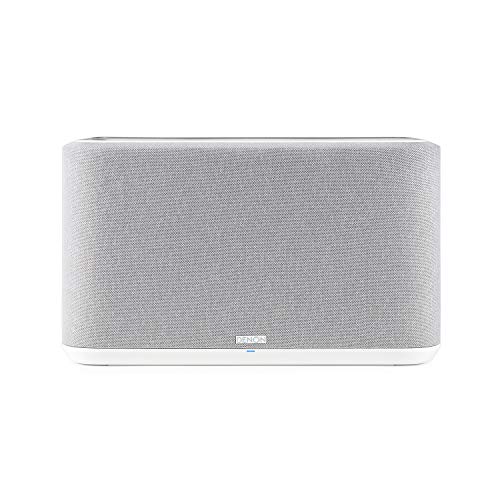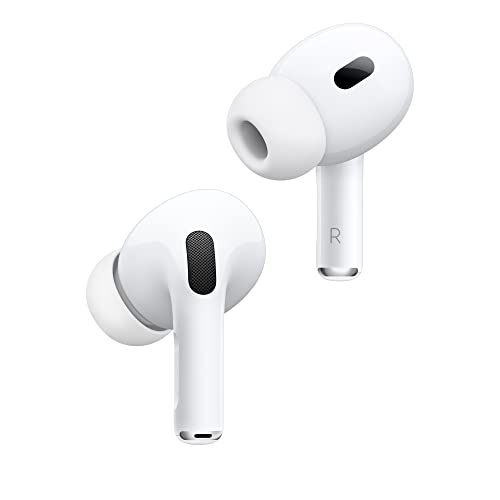If you are new to the world of home audio, you may wonder why your speakers keep cutting out. Even the best speakers, after all, depend heavily on their cables, A/V signal emitters, and related tools to create an audio signal. So what are the main reasons speakers cut out and what can you do to prevent it? Keep reading to find out.
KEY TAKEAWAYS:
- Speakers cut out for a number of reasons, many of them preventable.
- If you overdrive your speakers from the audio source or audio device, they become damaged which leads to audio that cuts out.
- Other causes of speaker connection issues? Out-of-date audio drivers, poor Bluetooth connectivity for wireless speakers, and damaged speaker wires.
Why Do Audio Speakers Cut Out?
Unfortunately, there are as many reasons why audio speakers cut out as there are audio speakers themselves, and the same is said when wondering why audio speakers crackle. Here are some of the major reasons that speakers cut out. As a note, some of these troubleshooting tips work for other issues, like if you are wondering why your subwoofer sounds weak.
Insider Tip
Keep your wires untangled, as tangled wires damage easily which leads to poor audio in many cases.
Wire Issues
Wired speakers play host to all manner of issues, many of them leading to crackling and related audio problems. If your wires or connection ports are dirty, guess what? Audio that cuts out. If your wires are slightly damaged anywhere along their length, guess what? Audio that cuts out or crackles. Loose connections, dirty pots, aging components, and plenty of other issues also lead to poor audio when using your speakers. How to prevent this? Purchase and install new wiring and keep an eye on it.
Bluetooth Issues
Bluetooth speakers are fantastically convenient, but some models don’t play well with ultra-hot signals, leading to crackling when trying to play music at high volumes. Another issue that plagues Bluetooth speakers, particularly rechargeable models, is that the battery only lasts for so long. If you are using them to play lots of music and podcasts, the batteries will deplete, leading to crackling and the audio prematurely cut out. One final issue impacting Bluetooth speakers is out-of-date audio drivers. If your drivers are ancient, it is likely your audio will suffer.
Blown Speakers
Speakers have plenty of necessary components, one of which is the voice coil. When this voice coil becomes overwhelmed, it blows the speakers. When you use blown speakers, you’ll hear the tell-tale frustrating crackle. How does the voice coil become damaged? Usually, it happens by overdriving the system, which eventually tears the speaker cone itself. To prevent this, try to avoid jamming your speakers at full blast. As an added bonus, this will also please your neighbors.
F.A.Q.S
Why does a Bluetooth connection cut out?
There are many reasons. You may have accidentally disabled the Bluetooth power button, the audio source could be powered down, or. your electronic devices could be out of juice.
How does a Bluetooth connection work?
Bluetooth sends audio signals wirelessly, without the need for speaker wires. You do need an audio device and a power source to send out the signal though.
When to consider purchasing Bluetooth speakers?
If you want audio without wires, and you. have a solid Internet connection speed, consider purchasing Bluetooth speakers.
STAT: The signal frequency range used by wireless speakers is generally the same as that used by cordless telephones – 900 MHz. The RF signal can traverse walls and floors/ceilings. Most manufacturers claim the signal transmits over a range of 150 to 300 feet (50 to 100 m). (source)
REFERENCES:
- https://www.sony.com/electronics/support/articles/00027755
- https://answers.microsoft.com/en-us/windows/forum/all/my-sound-keeps-cutting-out-and-it-isnt-from-my/02dc75c3-c45b-4f76-a4ba-3a902f8eba7b
- https://support.apple.com/en-us/HT209369r
- https://en.community.sonos.com/home-theater-228993/surround-speakers-keep-cutting-out-6767028
- https://en.wikipedia.org/wiki/Wireless_speaker

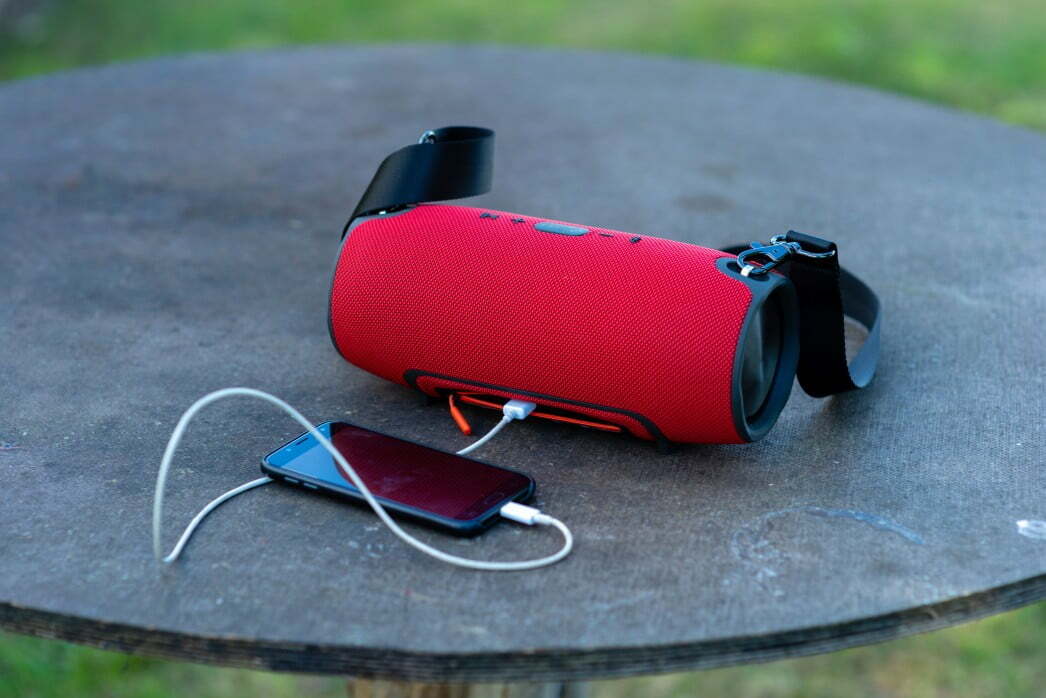













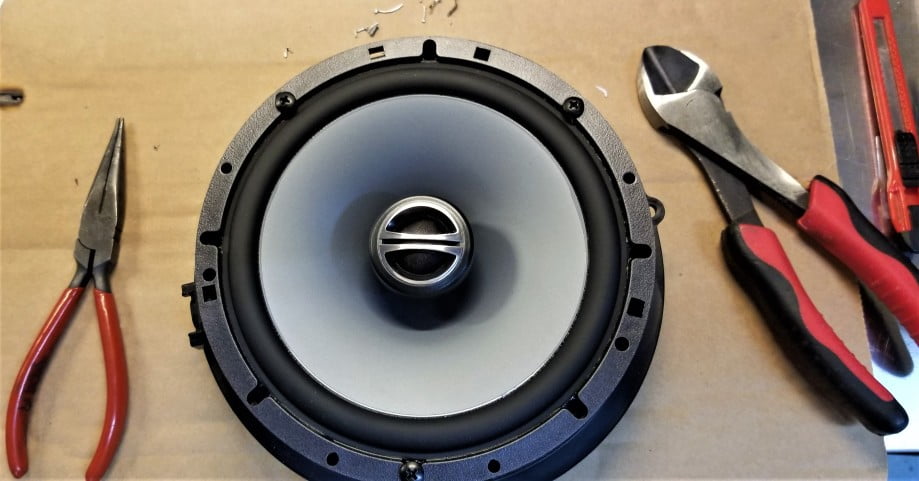
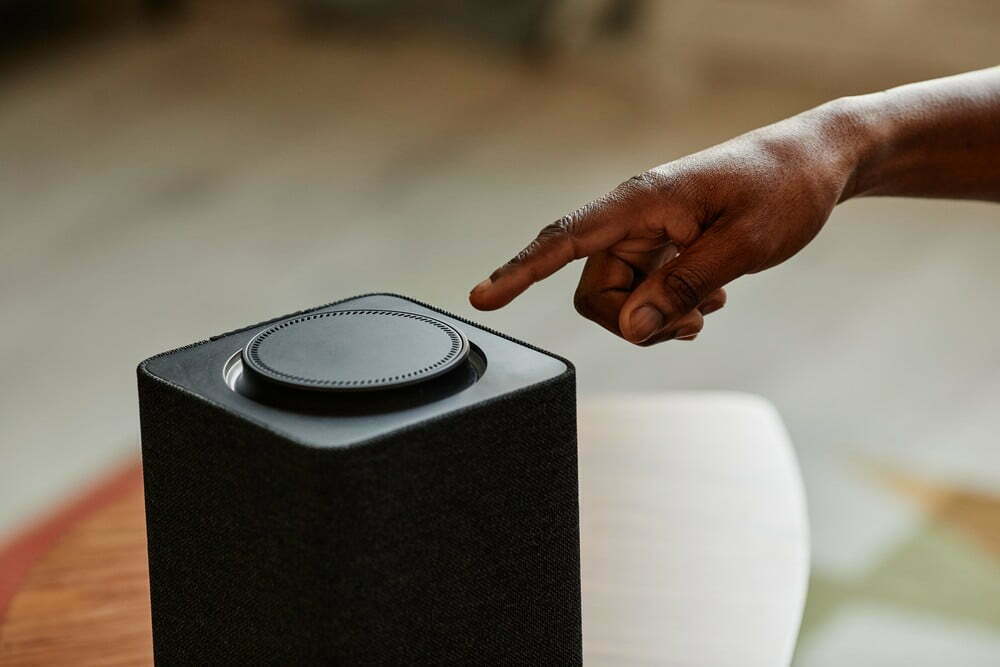
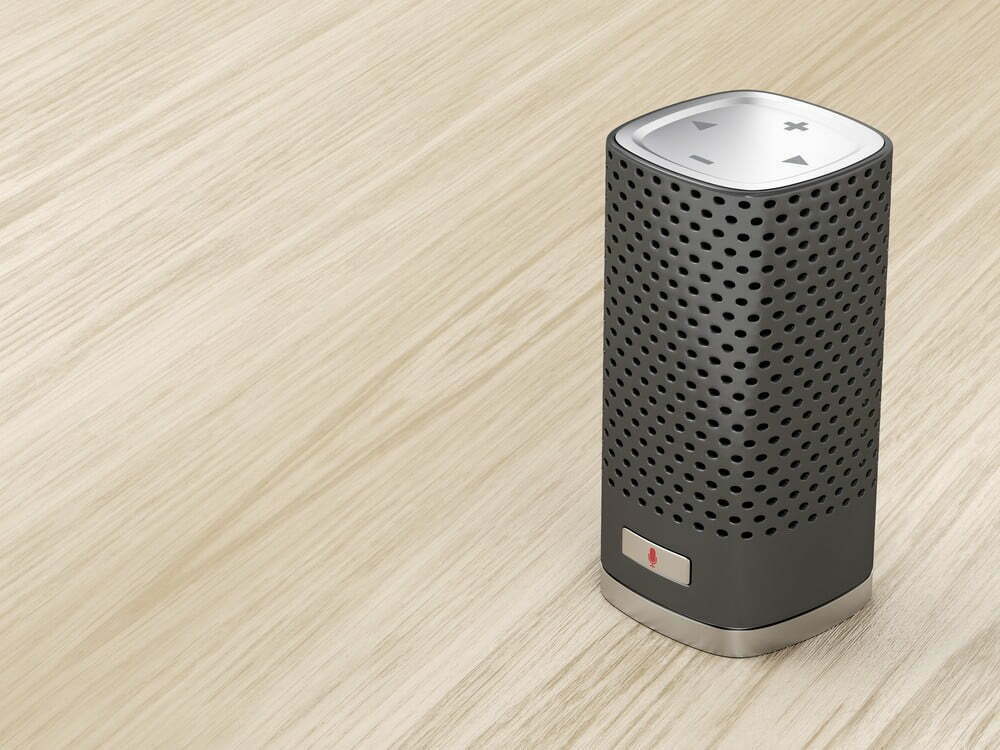
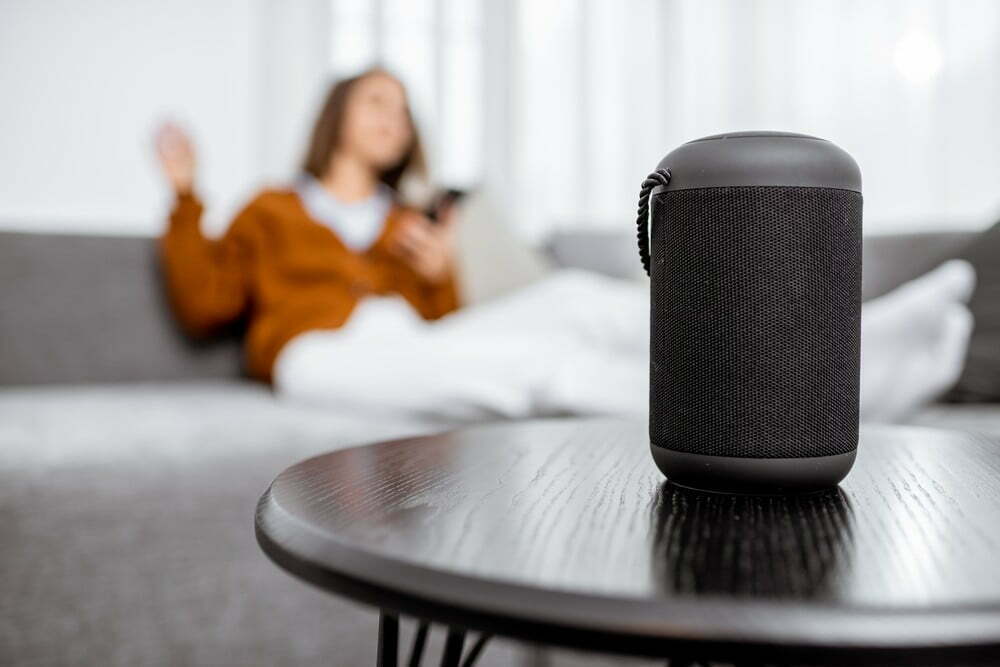

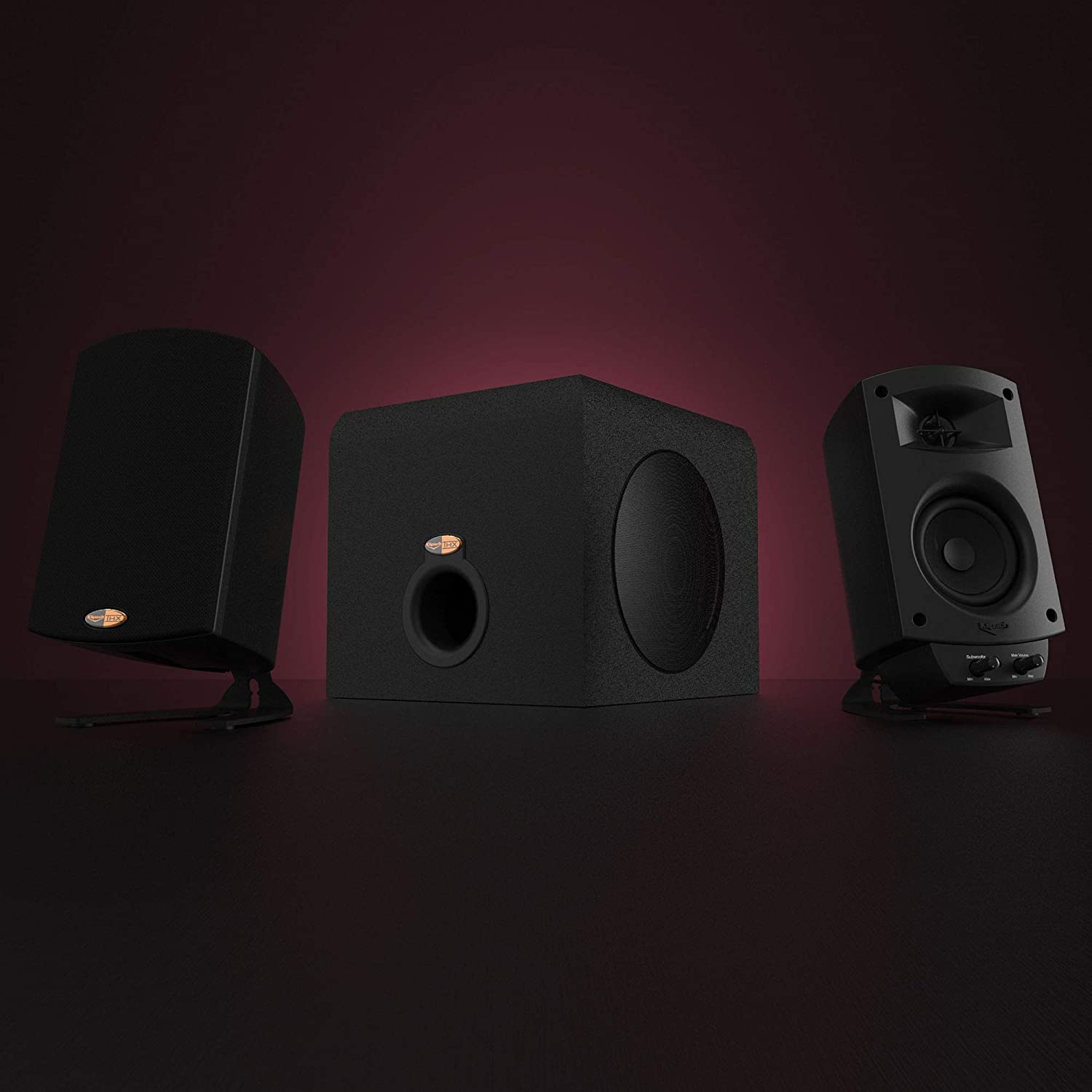
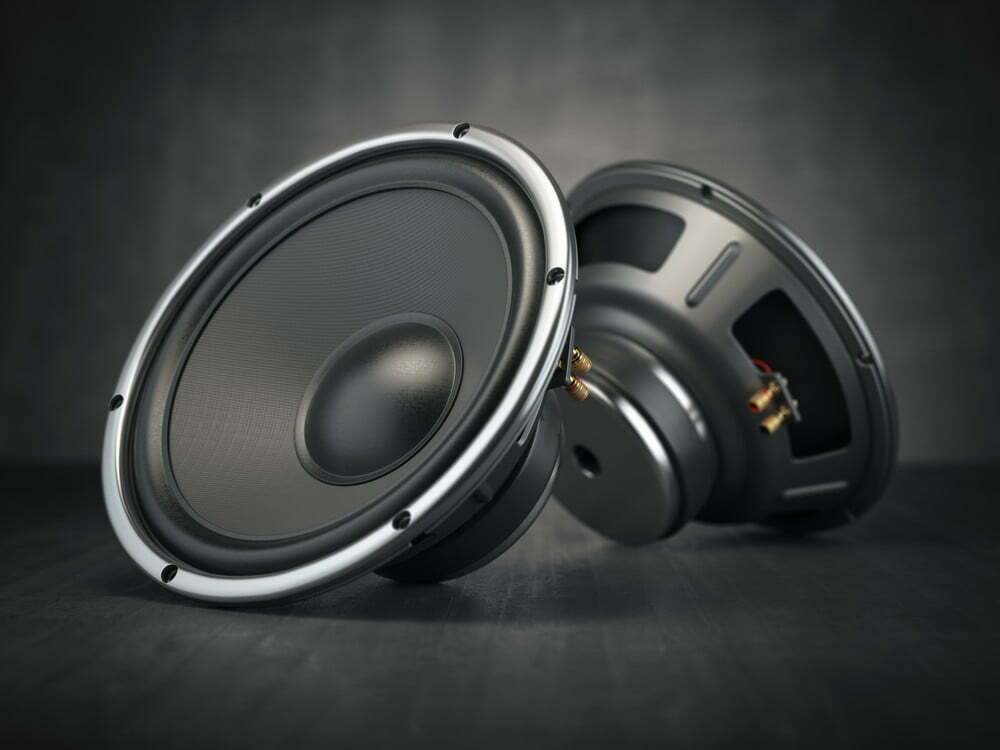
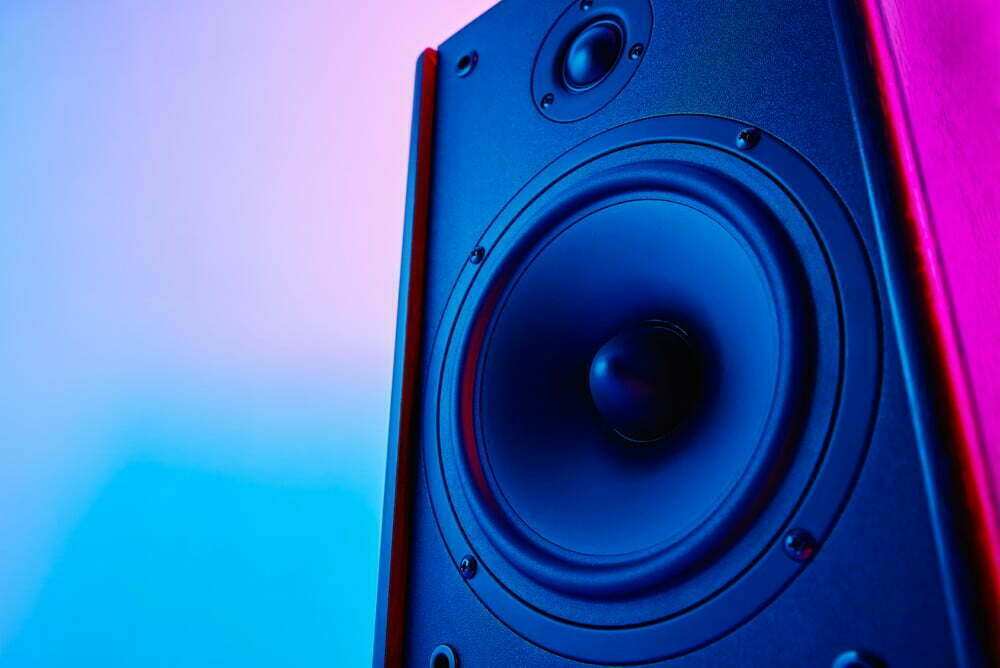
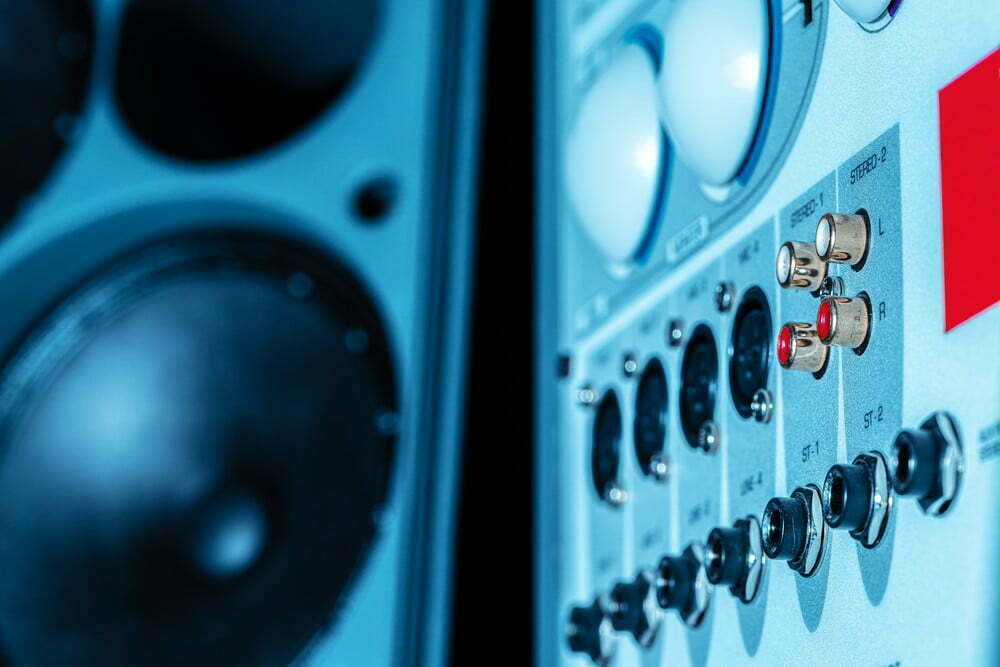
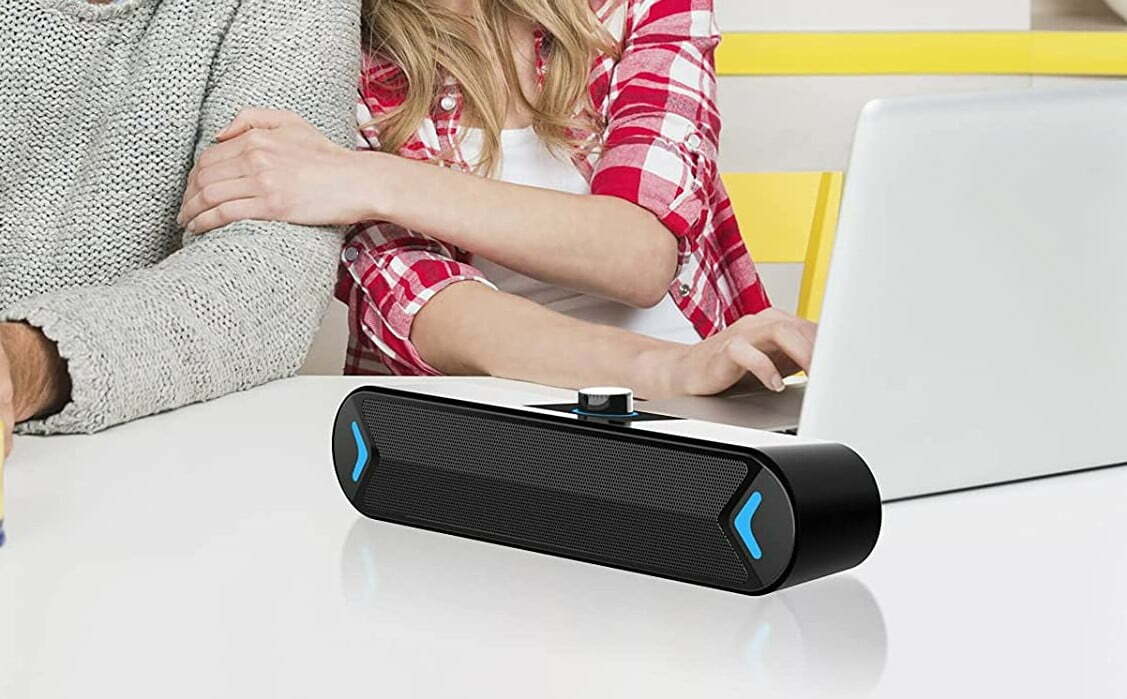
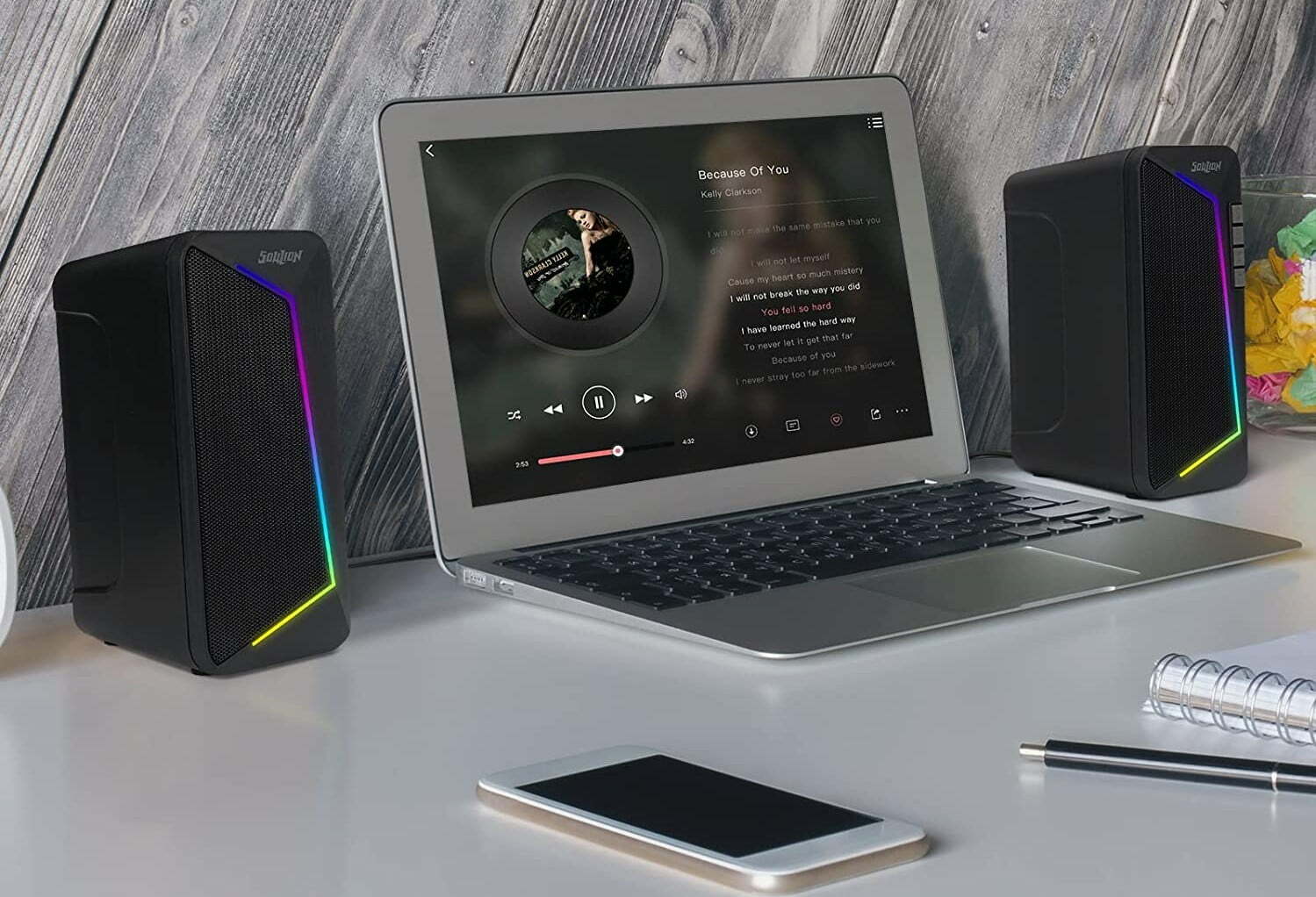
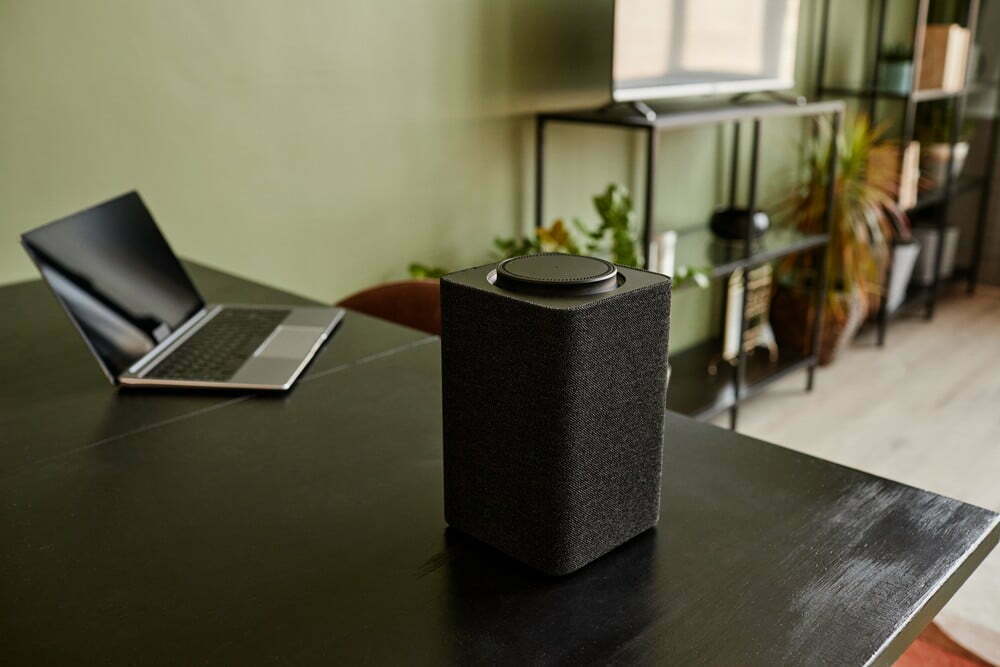

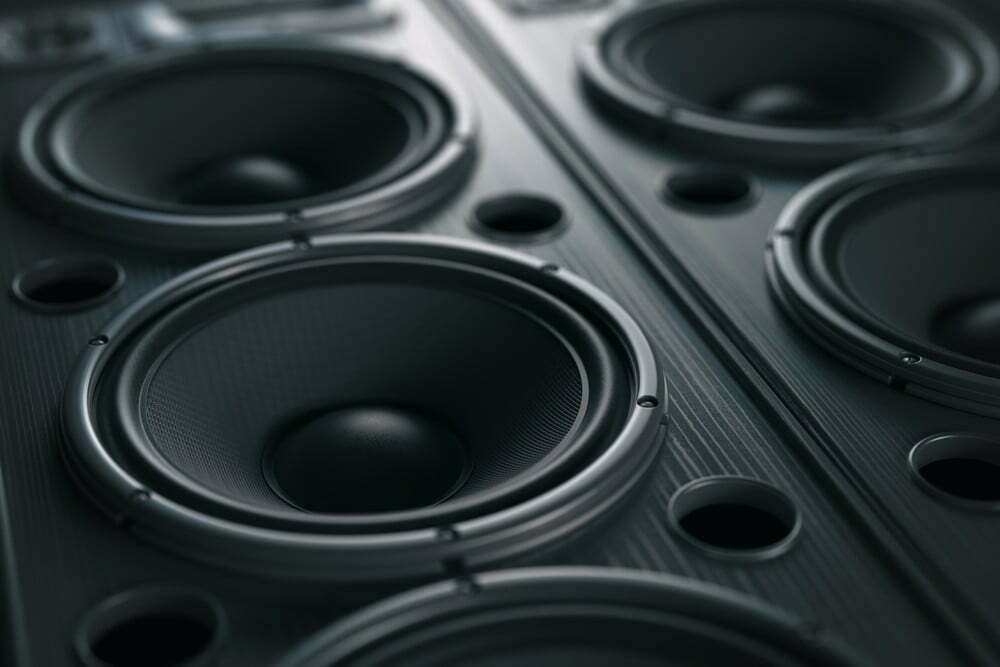
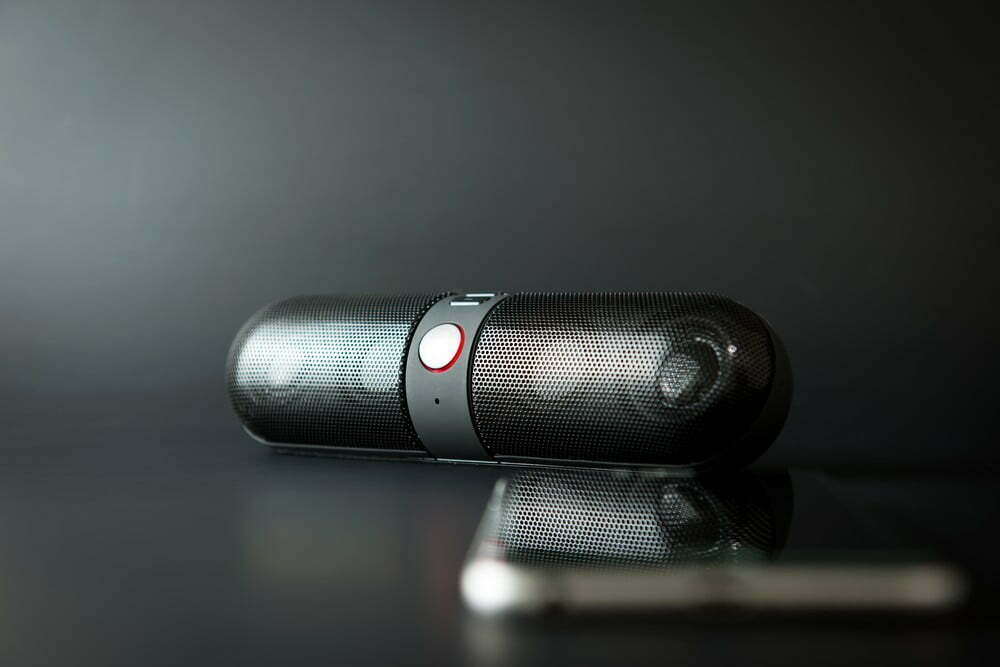
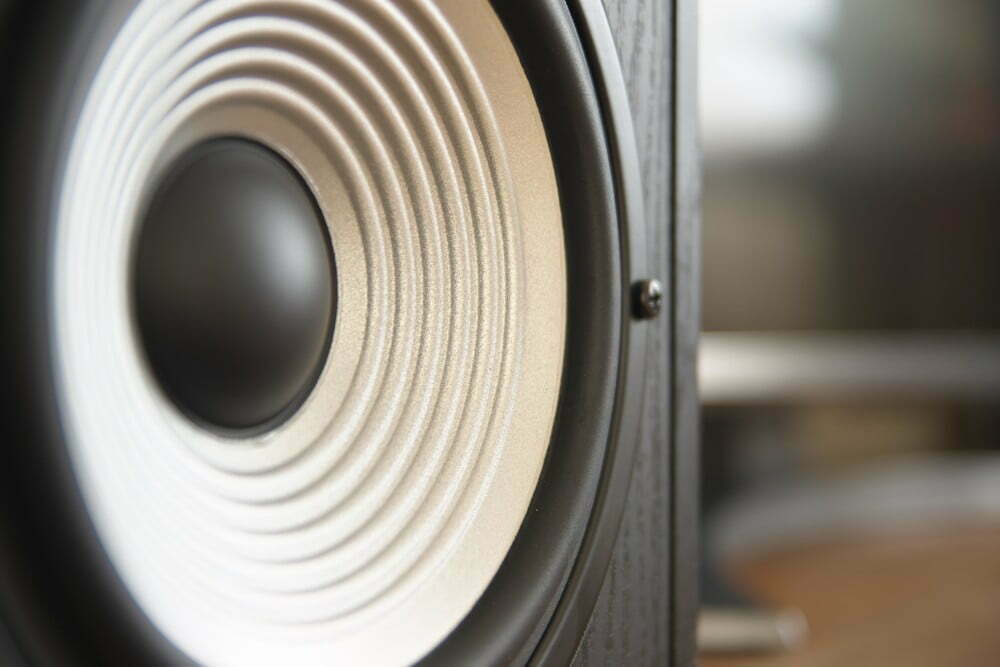
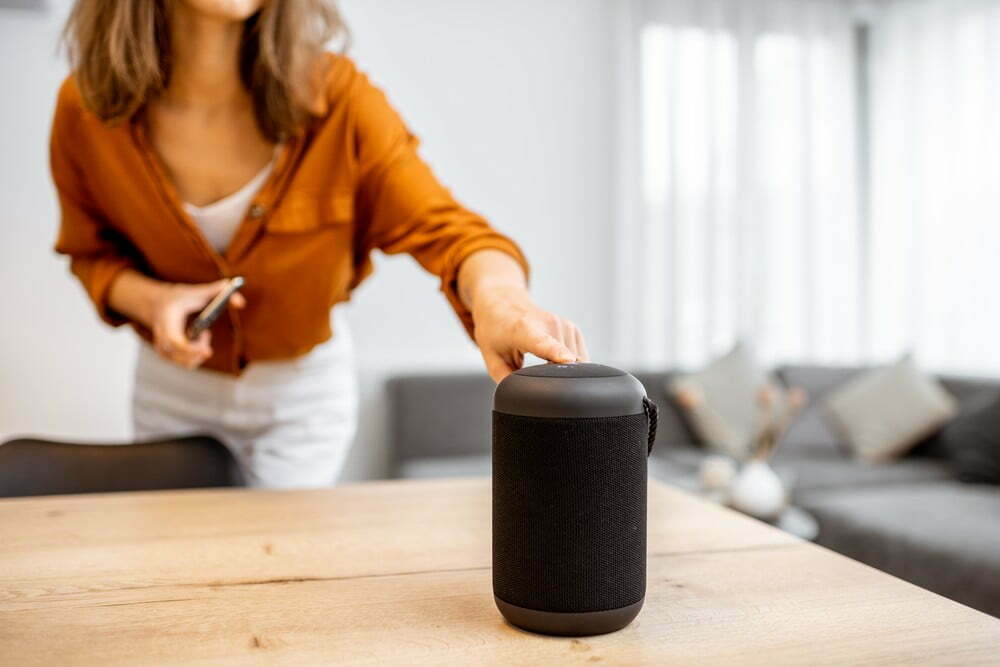
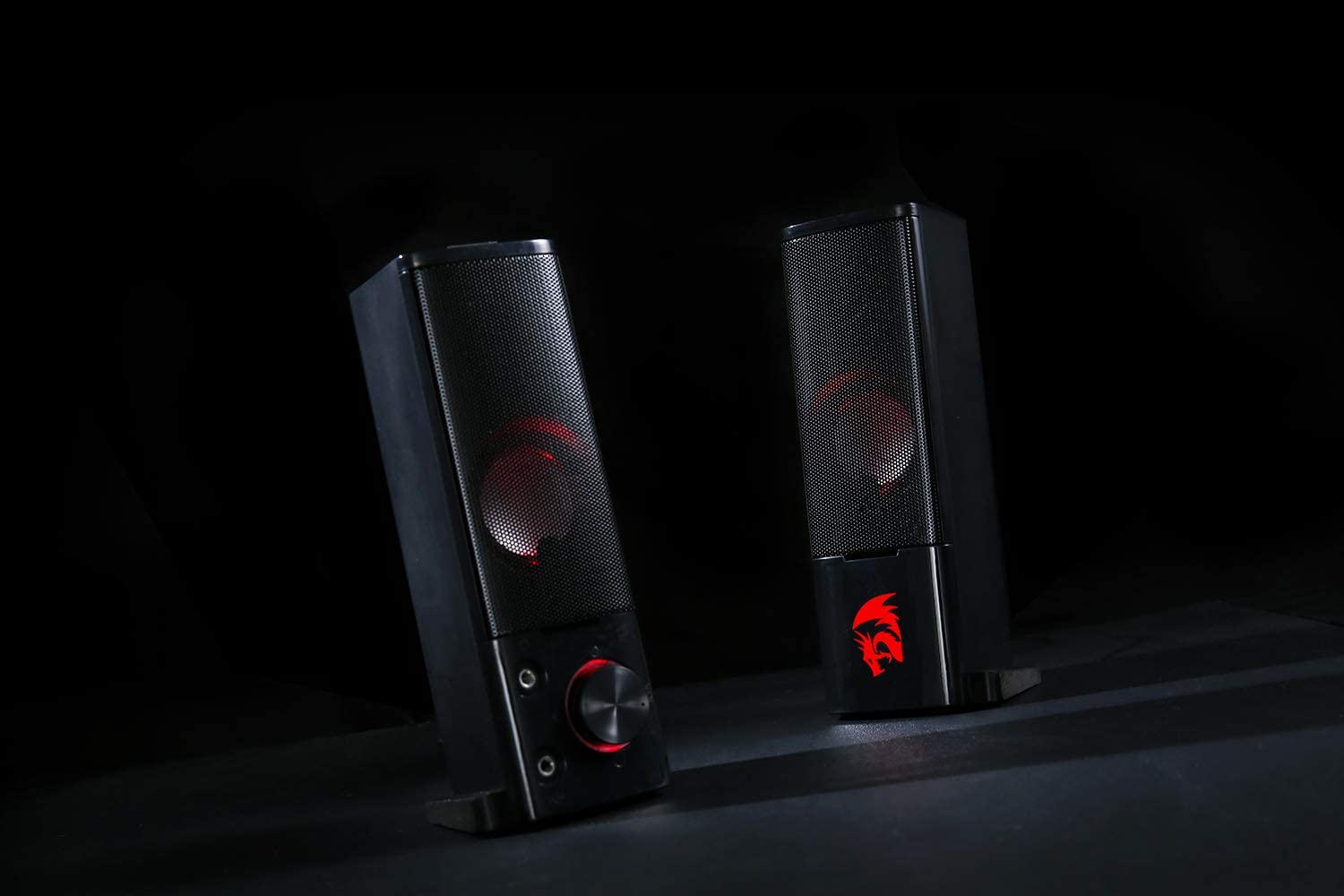
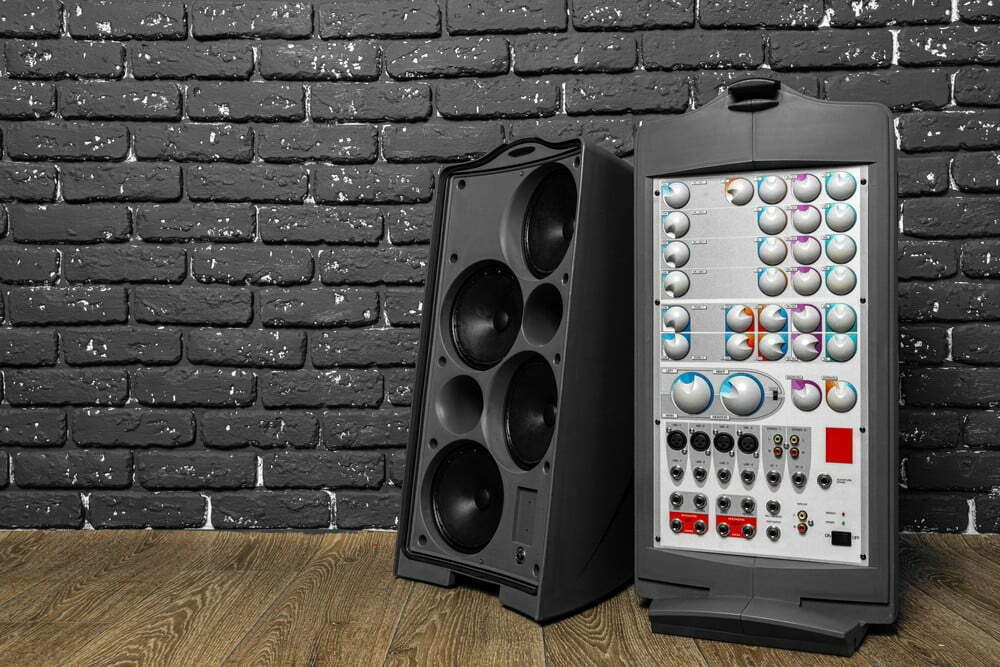
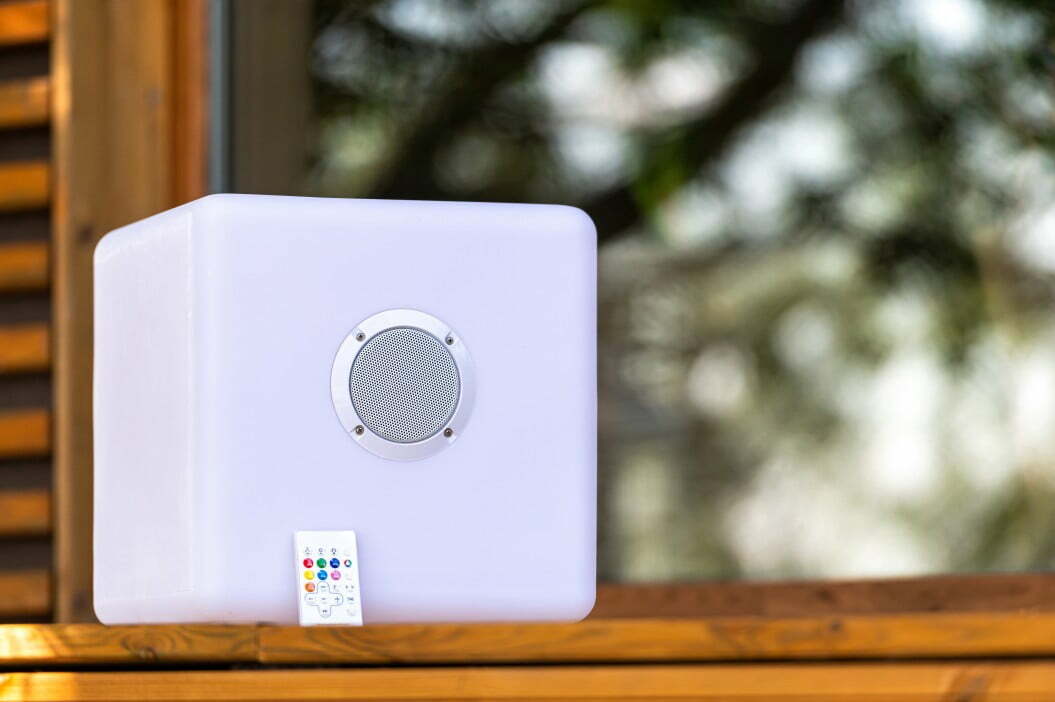
![Best Powered Speakers in [year] 27 Best Powered Speakers in 2026](https://www.gadgetreview.dev/wp-content/uploads/best-powered-speakers-image.jpg)
![Best Stereo Speakers in [year] 28 Best Stereo Speakers in 2026](https://www.gadgetreview.dev/wp-content/uploads/best-stereo-speakers-image.jpg)
![Best SoundBar in [year] ([month] Reviews) 29 Best SoundBar in 2026 (January Reviews)](https://www.gadgetreview.dev/wp-content/uploads/best-soundbar-image.jpg)
![Best Subwoofers in [year] ([month] Reviews) 30 Best Subwoofers in 2026 (January Reviews)](https://www.gadgetreview.dev/wp-content/uploads/best-subwoofer-image.jpg)
![Best TableTop Radio in [year] ([month] Reviews) 31 Best TableTop Radio in 2026 (January Reviews)](https://www.gadgetreview.dev/wp-content/uploads/best-tabletop-radios-image.jpg)
![Best 8 Inch Subwoofers in [year] 32 Best 8 Inch Subwoofers in 2026](https://www.gadgetreview.dev/wp-content/uploads/best-8-inch-subwoofer-image.jpg)
![Best Surround Sound Systems in [year] 33 Best Surround Sound Systems in 2026](https://www.gadgetreview.dev/wp-content/uploads/best-surround-sound-system-image.jpg)
![Best Laptop Speakers in [year] 34 Best Laptop Speakers in 2026](https://www.gadgetreview.dev/wp-content/uploads/best-laptop-speakers-image.jpg)
![Best Wireless Surround Sound Speakers in [year] 35 Best Wireless Surround Sound Speakers in 2026](https://www.gadgetreview.dev/wp-content/uploads/best-wireless-surround-sound-image.jpg)
![Best Bose Speakers in [year] 36 Best Bose Speakers in 2026](https://www.gadgetreview.dev/wp-content/uploads/best-bose-speakers-image.jpg)
![Best Home Stereo Systems in [year] 37 Best Home Stereo Systems in 2026](https://www.gadgetreview.dev/wp-content/uploads/best-home-stereo-system-image.jpg)
![Best WiFi Speakers in [year] 38 Best WiFi Speakers in 2026](https://www.gadgetreview.dev/wp-content/uploads/best-wifi-speakers-image.jpg)
![Best Wireless Home Theater Systems in [year] 39 Best Wireless Home Theater Systems in 2026](https://www.gadgetreview.dev/wp-content/uploads/best-wireless-home-theater-system-image.jpg)
![Best Party Speakers in [year] 40 Best Party Speakers in 2026](https://www.gadgetreview.dev/wp-content/uploads/best-party-speakers-image.jpg)
![Loudest Bluetooth Speakers in [year] 41 Loudest Bluetooth Speakers in 2026](https://www.gadgetreview.dev/wp-content/uploads/loudest-bluetooth-speaker-image.jpg)
![Best Car Speakers for Bass in [year] 42 Best Car Speakers for Bass in 2026](https://www.gadgetreview.dev/wp-content/uploads/best-car-speakers-for-bass-image.jpg)
![Best Marine Speakers in [year] 43 Best Marine Speakers in 2026](https://www.gadgetreview.dev/wp-content/uploads/best-marine-speakers-image.jpg)
![Best JBL Speakers in [year] 44 Best JBL Speakers in 2026](https://www.gadgetreview.dev/wp-content/uploads/best-jbl-speakers-image.jpg)
![Best Home Theater Speakers in [year] 45 Best Home Theater Speakers in 2026](https://www.gadgetreview.dev/wp-content/uploads/best-home-theater-speakers-image.jpg)
![Best Waterproof Speakers in [year] 46 Best Waterproof Speakers in 2026](https://www.gadgetreview.dev/wp-content/uploads/best-waterproof-speaker-image.jpg)


